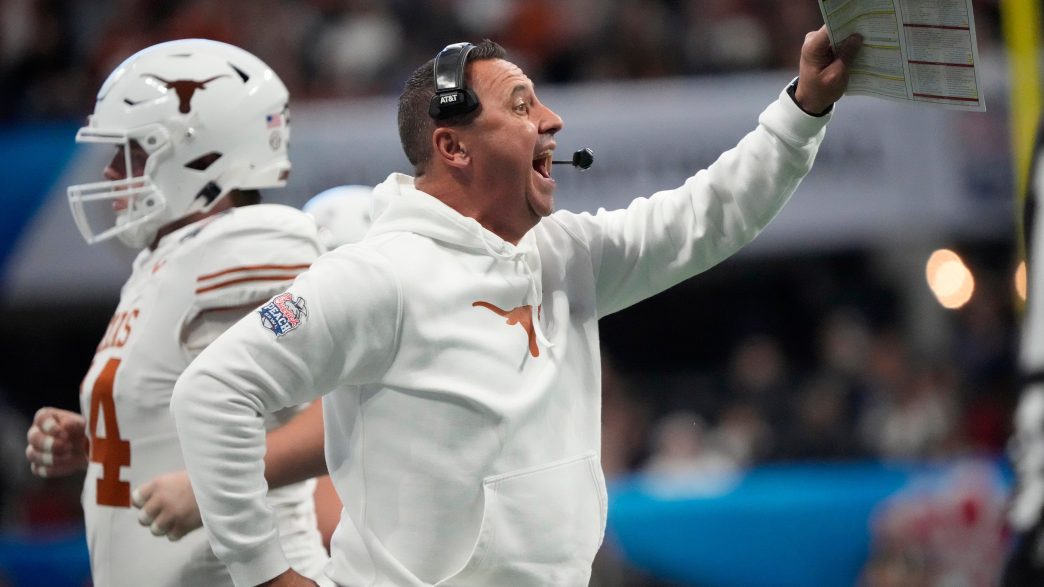As the college football offseason heats up, teams are ramping up their preparations for the upcoming season, focusing on finalizing rosters and refining their offseason programs. For the Texas Longhorns, the urgency is palpable as they aim to break through after falling short in the College Football Playoff semifinals for two straight years.
Recently, head coach Steve Sarkisian made an appearance on the “Up & Adams Show,” where he shared insights into the upcoming season, highlighting key topics such as quarterback Arch Manning and the format of their spring practices. Interestingly, Sarkisian announced that Texas will not be holding a traditional spring game this year—a decision that signals a strategic shift for the program.
Sarkisian explained that the rationale behind this choice stems from the high volume of games the Longhorns have played in recent seasons, amounting to 30 contests over the last two years. Citing the physical demands of the game, he emphasized, “That’s a lot for college football.” With a roster that includes 21 mid-year high school arrivals and 25 players invited to the NFL Combine in the last couple of years, the focus on development is crucial.
The Longhorns will pivot towards a training approach reminiscent of NFL Organized Team Activities (OTAs), as Sarkisian articulated. “Our approach is going to be a little bit more NFL-driven, kind of more of an OTA style early on,” he noted. This sets the stage for a more gradual integration of scrimmage formats as spring ball progresses, allowing the coaching staff to maximize their limited practice opportunities.
Sarkisian’s thoughts highlight a growing trend in college football, where adapting to the evolving landscape of the game is essential. By reimagining their spring practices, the Longhorns are not just responding to their own needs, but are also part of a broader conversation on how programs are adjusting their methodologies. Texas isn’t alone in this shift; other programs, like the USC Trojans, have also opted out of traditional spring games, reflecting a collective recalibration in the sport’s approach to player development and competition.
As teams prepare for the season ahead, all eyes will be on whether these strategic decisions pay off in the long run, particularly for the Longhorns as they seek to establish themselves as serious contenders in college football. The decision to forgo a spring game is a bold one, but with focus and adaptation, it could very well give Texas the edge they need to finally turn the corner.







